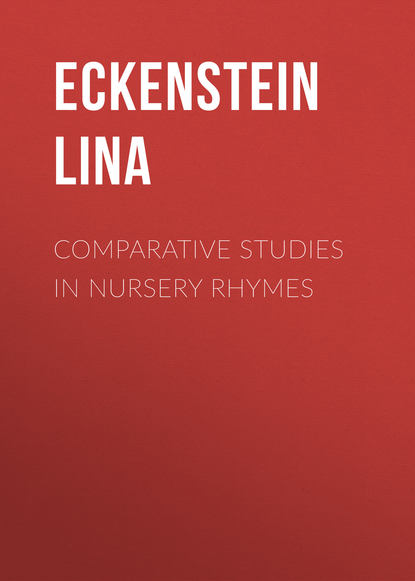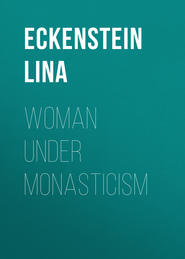По всем вопросам обращайтесь на: info@litportal.ru
(©) 2003-2024.
✖
Comparative Studies in Nursery Rhymes
Настройки чтения
Размер шрифта
Высота строк
Поля
In this Spanish version there is the alternative of associating five with the jars of wine of Cana or with the wounds of St. Francis, both of which are Christian conceptions that occur in the Christian chants – the wounds of St. Francis in the Italian chant, and the jugs of wine, six in number, in the chant as it is sung and danced in Canada. Christian conceptions are also introduced into some of the numerous versions of the heathen Chants of the Creed that are current among ourselves, but they are relatively few, and by their nature suggest a change from heathen to Christian matters of belief.
The oldest version of this chant was printed by Chambers from an unpublished collection of songs by P. Buchan. It is in dialogue form, and, as in the case of the Druidical chants, its words indicate a teacher who is instructing his pupils: —
1. We will a' gae sing, boys,
Where will we begin, boys?
We'll begin the way we should,
And we'll begin at ane, boys.
O, what will be our ane, boys?
O, what will be our ane, boys?
– My only ane she walks alane,
And evermair has dune, boys.
2. Now we will a' gae sing, boys;
Where will we begin, boys?
We'll begin where we left aff,
And we'll begin at twa, boys.
What will be our twa, boys?
– 'Twa's the lily and the rose
That shine baith red and green, boys.
My only ane she walks alane,
And evermair has dune, boys.
3. Now we will a' gae sing, boys, … etc.
What will be our three, boys?
Three, three thrivers … etc.
(1870, p. 44.)
Four's the gospel-makers, five's the hymnlers o' my bower, six the echoing waters, seven's the stars in heaven, eight's the table rangers, nine's the muses of Parnassus, ten's the commandments, eleven's maidens in a dance, twelve's the twelve apostles.
Further variations of this chant have been recovered in Dorsetshire, Cornwall, Derbyshire, Norfolk, and elsewhere. Many of them at the close of each line insert the interjection O in the place of the word boys. This drew the suggestion from Dr. Jessopp that the song was connected with the so-called Seven great Os, a song sung at vespers during Advent before the Magnificat from 16 December to Christmas Eve. It took its name from the first line in the song, which begins O Sapientia.
The Dorsetshire version is still sung at Eton, and is known as "Green grow the rushes oh," the words that form the chorus: —
Solo: I'll sing you one oh!
Chorus: Green grow the rushes oh!
What is your one oh?
Solo: One is one and all alone
And ever more shall be so. [57 - Byrne, S. R., Camp Choruses, 1891, p. 91.]
The same order is observed for the next verse, the soloist explaining two, the chorus adding one, and so forth. In this version we have two lily-white boys, three rivals, four gospel makers, five symbols at your door, six proud walkers, seven stars in the sky, eight bold rainers, nine bright shiners, ten commandments, eleven for the eleven that went up to heaven, twelve for the twelve apostles.
A Chant of the Creed is sung in Cornwall by the sailors, and begins: —
Come and I will sing you!
– What will you sing me?
I will sing you one, oh!
– What is your one, oh!
Your one is all alone,
And ever must remain so.
The explanations which follow are very corrupt. Two are lily-white maids clothed all in green, oh!; three are bright shiners; four are gospel-makers; five are the ferrymen in a boat and one of them a stranger; six is the cheerful waiter; seven are the stars in the sky; eight are the archangels; nine are the bold rainers; ten are the commandments; eleven went up to heaven; twelve are the apostles.[58 - Lang, A., "At the Sign of the Ship," in The Gentleman's Magazine, January, 1889, p. 328.]
In Derbyshire the chant is associated with the harvest festival, and takes the form of a drinking song. It begins with three, but the explanations of one and two are preserved in the last verse, in which the song is carried back to its real beginning: —
Plenty of ale to-night, my boys, and then I will sing you.
What will you sing? – I'll sing you three oh.
What is the three O?..
The last verse enumerates: – Twelve apostles; eleven archangels; ten commandments; nine bright shiners; eight, the Gabriel riders; seven golden stars in heaven; six came on the board; five by water; four Gospel rhymers; three threble thribers; two lily-white maids and one was dressed in green O.[59 - Addy, S. O., "Two Relics of English Paganism," in The Gentleman's Magazine, July, 1890, p. 46.]
This version of the chant was sung or recited at harvest-time in Norfolk also, and began: —
A: I'll sing the one O.
B: What means the one O?
A: When the one is left alone, No more can be seen O!
C: I'll sing the two Os.
D: What means the two Os?
Two's the lily-white boys – three's the rare O – four's the gospel makers – five's the thimble in the bowl – six is the provokers – seven's the seven stars in the sky – eight is the bright walkers – nine's the gable rangers – ten's the ten commandments – 'leven's the 'leven evangelists – twelve's the twelve apostles.[60 - Jessopp, "A Song in Arcady," in Longman's Magazine, June, 1889, p. 187.]
The version current in Herefordshire is preserved as far as number eight only: —
Eight was the crooked straight,
Seven was the bride of heaven,
Six was the crucifix,
Five was the man alive,
Four was the lady's bower [or lady bird, or lady, or lady's birth?],
Three was the Trinity,
Two was the Jewry,
One was God to the righteous man
To save our souls to rest. Amen.[61 - From Stoke Prior, Herefordshire, in Addy, S. O., Household Tales and Traditional Remains, 1895, p. 150.]
Some of our nursery rhymes which are nonsensical represent these lines in a further degradation: —
One, two, three, four, five,
I caught a hare alive;
Six, seven, eight, nine, ten,
I let her go again.
(c. 1783, p. 48.)
And the following, in which "sticks" takes the place of crucifix, while "straight" recalls crooked straight: —






